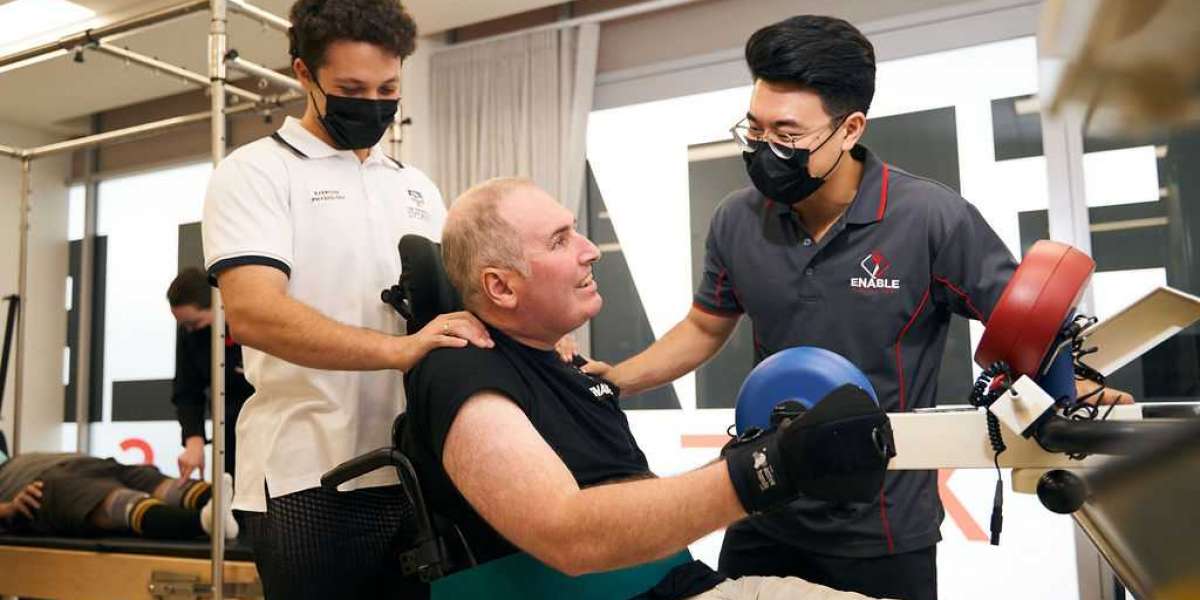In today's fast-paced world, the importance of physical health cannot be overstated. Amidst the hustle and bustle of daily life, individuals often find themselves grappling with various musculoskeletal issues and mobility constraints. This is where the expertise of a physiotherapist shines through. From aiding in rehabilitation to promoting overall wellness, the role of a physiotherapist encompasses a wide array of responsibilities. This comprehensive guide delves deep into what a physiotherapist does, shedding light on their invaluable contributions to healthcare and society.
Understanding the Role of a Physiotherapist
At its core, physiotherapy is a branch of healthcare that focuses on restoring movement and function to individuals affected by injury, illness, or disability. Physiotherapists, or physical therapists, are highly trained healthcare professionals with specialized knowledge in anatomy, physiology, and biomechanics. Their primary goal is to optimize physical function and enhance the quality of life for their patients through a holistic approach to treatment.
Rehabilitation and Recovery
One of the primary responsibilities of a physiotherapist is to assist individuals in their journey towards rehabilitation and recovery. Whether recovering from a sports injury, surgery, or stroke, physiotherapists play a pivotal role in restoring movement and function. Through a combination of therapeutic exercises, manual therapy techniques, and personalized treatment plans, physiotherapists help patients regain strength, flexibility, and range of motion.
Management of Chronic Conditions
In addition to acute injuries and illnesses, physiotherapists also specialize in the management of chronic conditions such as multiple sclerosis (MS). MS is a neurological disease that affects the central nervous system, leading to a wide range of symptoms, including muscle weakness, balance problems, and fatigue. Physiotherapists work closely with individuals diagnosed with MS to develop tailored exercise programs to improve mobility, reduce pain, and enhance overall quality of life.
Pain Management
Chronic pain is a pervasive issue that affects millions of individuals worldwide. Physiotherapists play a crucial role in pain management by employing various techniques to alleviate discomfort and improve function. From therapeutic exercises and manual therapy to modalities such as ultrasound and electrical stimulation, physiotherapists utilize a multidisciplinary approach to address pain holistically.
Prevention and Wellness
While physiotherapists excel in rehabilitation and recovery, their role extends beyond treating injuries and illnesses. They also play a crucial role in promoting prevention and wellness initiatives to reduce the risk of future injuries and optimize overall health. Through education, ergonomic assessments, and exercise prescriptions, physiotherapists empower individuals to take proactive steps toward maintaining a healthy and active lifestyle.
The Importance of Continuing Education
To stay abreast of the latest advancements in their field, physiotherapists engage in ongoing professional development and continuing education. This commitment to lifelong learning ensures they have the knowledge and skills to provide high-quality care to their patients. For individuals aspiring to pursue a career in physiotherapy, obtaining a Master of Science (MS) in Physical Therapy is often the first step towards gaining the necessary expertise and credentials.

MS in Physical Therapy Admission
For those passionate about making a difference in the lives of others through physiotherapy, pursuing a Master of Science (MS) in Physical Therapy is an exciting and rewarding path to consider. Admission to MS programs in physical therapy typically requires a bachelor's degree in a related field, along with prerequisite coursework in anatomy, physiology, and kinesiology. Prospective students must also demonstrate a solid commitment to physiotherapy and excellent interpersonal skills.
Conclusion
In conclusion, the role of a physiotherapist is multifaceted and dynamic, encompassing a wide range of responsibilities aimed at enhancing physical function and promoting overall well-being. Physiotherapists play a vital role in healthcare delivery, whether assisting individuals in their journey towards rehabilitation, managing chronic conditions such as multiple sclerosis, or promoting prevention and wellness initiatives. By pursuing a Master of Science (MS) in Physical Therapy and embarking on a career in this rewarding field, individuals have the opportunity to make a positive impact on the lives of others while fulfilling their passion for helping others achieve optimal health and mobility. Read more here!




